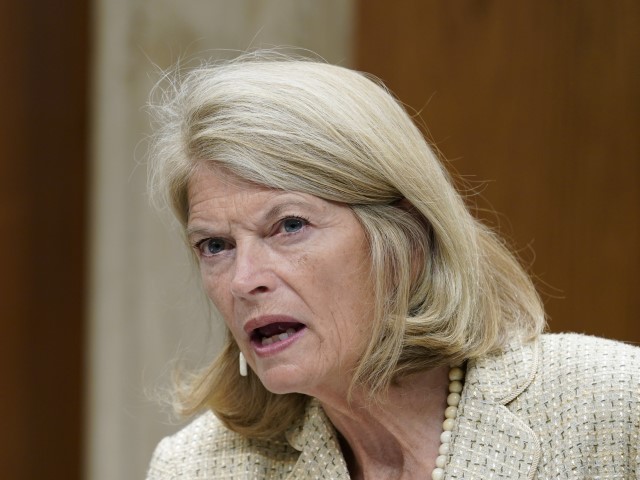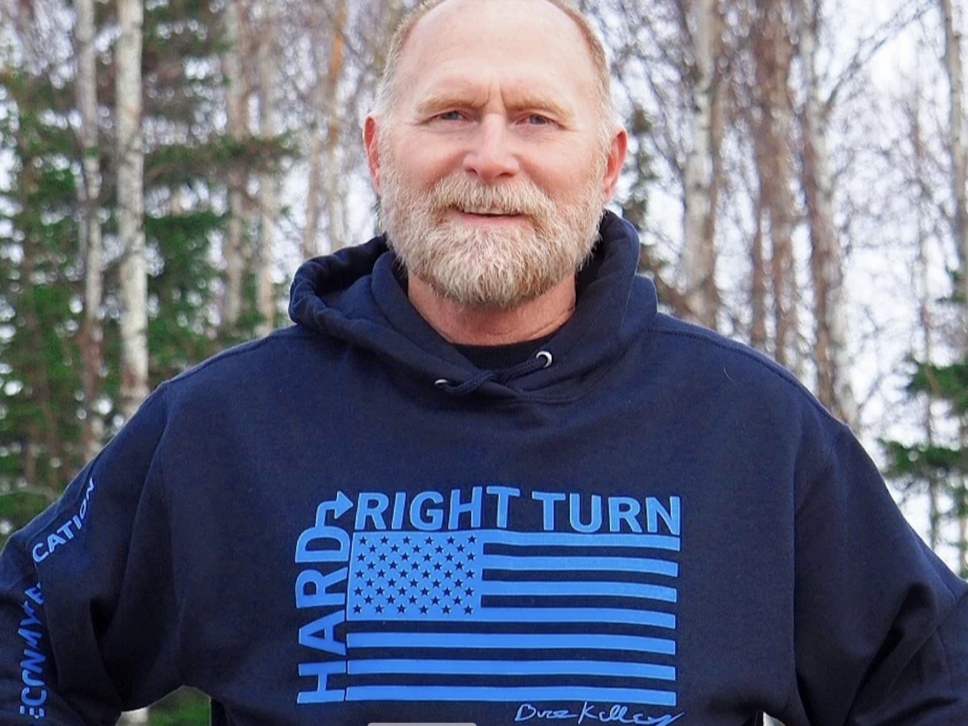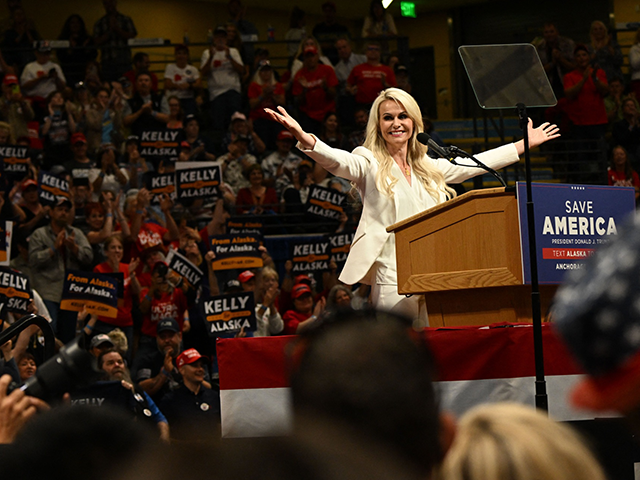Three former U.S. Senate candidates in recent weeks have coalesced behind Trump-endorsed Kelly Tshibaka and not behind the 21-year incumbent, Sen. Lisa Murkowski (R-AK).
Candidates suspending their campaigns and falling behind Tshibaka is exactly what she needs to win because of Alaska’s ranked-choice voting system, which forwards votes from lesser candidates behind stronger ones as balloting progresses. Their early departure from the race and endorsement of Tshibaka will have an impact on the amount of votes that will fall to Tshibaka over Murkowski, as the second and third ballots present themselves.
The latest example of a candidate dropping from the race to back Tshibaka is Pat Nolin. The Republican candidate for U.S. Senate, who finished fifth in the August 16 primary, announced his support of Tshibaka Wednesday.
“Alaska doesn’t need a 25-year career politician who helps Joe Biden but obstructed Trump,” Nolin said in a press release. “Murkowski isn’t independent or for Alaska, but instead she’s become increasingly liberal and votes along with her liberal D.C. friends. Kelly Tshibaka will fight for Alaska – for our jobs, our resources, and our 2nd Amendment rights.”

Sen. Lisa Murkowski (R-AK) on Wednesday, July 13, 2022, on Capitol Hill in Washington. (Mariam Zuhaib/AP)
Nolin is the third candidate to back Tshibaka. On Monday, Buzz Kelley, a fellow Republican candidate, suspended his campaign and endorsed Tshibaka. Before that, Edgar Blatchford, a former U.S. Senate Democrat candidate, bowed out and endorsed Tshibaka.

Republic candidate for Alaska’s U.S. Senate seat Buzz Kelley suspended his campaign Sept. 12, 2022. (Campaign photo)
“Our campaign continues to coalesce grassroots support and our growing unified front will retire Lisa Murkowski after 21 years in the Senate,” Tshibaka said of the endorsements. “We need a senator who will actually fight for Alaska, not bend to the will of the D.C. elites and support Joe Biden’s energy-annihilating, job-killing, gun-grabbing radical agenda at every turn. When I’m in the Senate, I will always stand up for Alaska and against the D.C. insiders.”
Blatchford’s endorsement specifically could mitigate some of the Democrat support Murkowski needs to defeat Tshibaka. Democrat candidates in the open August 16 primary received about 8.5 percentage points of the vote. Because of the ranked-choice voting system — and similarly to how Rep. Liz Cheney (R-WY) tried to benefit from Democrat votes in her primary election loss — pro-impeachment Murkowski’s best hope of winning reelection against Tshibaka could be the opposition party.
The way Alaska’s ranked-choice general election and open primary system, instituted in 2020, works is as follows:
All candidates from all parties appear on the ballot together in the August primary. The top four vote-getters regardless of party then advance to the general election, and their voters are given the opportunity to pick their top choice, as well as their second and third choices. If no candidate in the first round of voters’ first choices gets 50 percent of the vote, the last place candidate’s second choices are distributed across the remaining three candidates to see if someone can get across the majority threshold. If that fails again to produce a majority vote-getter, then a third round is conducted where the third place candidate’s votes are redistributed according to second choices between the remaining two candidates.
According to polling, Tshibaka is tied with Murkowski nearly 50 days until the general election. Tshibaka leads Murkowski on the first ballot by 7.9 points and on the second by 9.3 points. On the third ballot, the poll shows Murkowski leading Tshibaka by 0.2 percent, a statistical tie. Democrat Pat Chesbro received 13.1 percent on the first ballot and 13.9 percent on the second ballot before becoming ineligible for the third ballot.
“I think it is really becoming clear that Alaskans across the entire spectrum are uniting behind this campaign,” Tshibaka told campaign supports on a Monday phone call after the poll was released.
Follow Wendell Husebø on Twitter @WendellHusebø. He is the author of Politics of Slave Morality.


COMMENTS
Please let us know if you're having issues with commenting.